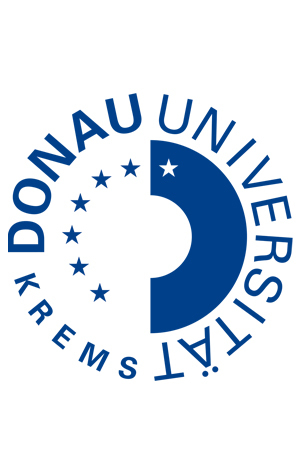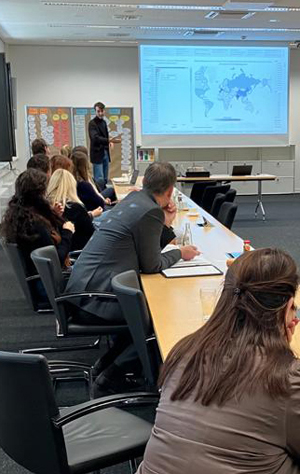Archiv

Shared use of large-scale equipment
19 April 2024
In an article for “DUZ”, Dr Ingeborg Lasser, Senior Consultant at CHE Consult, examines the profile-building and sustainable use of large-scale facilities.
According to the author, research-related large-scale facilities and technology platforms make an enormous contribution to the development of a university’s profile and the implementation of its overall research strategy – provided that transparent access options and effective organisation of research and operational processes are guaranteed. They are the basis for sustained excellence in research.
For example, the organisational form of a “core facility” is suitable for ensuring the efficient and effective use of laboratories and technologies: operations are organised centrally and the core facility can be booked and used by researchers from different areas. The potential benefits can be broadly grouped into three categories: financial benefits, positive impact on the quality and quantity of research, and strengthening of diverse communities.

Does higher education law hinder the digitalisation of studying and teaching?
17 April 2024
A new study by CHE Consult examines the impact of legal regulations on the digitalisation of studying as well as teaching and provides recommendations for policy-makers and universities.
Higher education legislation, especially at state level, has a considerable influence on the organisation of university teaching, which became particularly clear during the coronavirus pandemic. Although they react to developments and create framework conditions, federal and state regulations are also perceived as limiting the scope for action in the digitalisation of studying and teaching. On behalf of the Hochschulforum Digitalisierung, CHE Consult took a close look at legal texts and regulations and examined the extent to which they hinder the design of digital and digitally-supported teaching.
The study looks at the areas of data protection, copyright law, examination law as well as the “Lehrverpflichtungs-” (LVVO) and “Kapazitätsverordnung” (KapVO). The authors categorise whether and to what extent these obstacles perceived by university management correspond to the actual legal framework. They come to the conclusion that although the laws and regulations could be improved, they do not restrict the universities’ scope of action for the digitalisation of teaching and learning. Finally, based on good practices, they identify suggestions for improvement for policymakers and formulate recommendations for action for universities.

Conference on the operation of large-scale equipment and laboratories
01 March 2024
CHE Consult is organising the face-to-face event “Sharing and efficiently operating large-scale equipment/laboratories” on 16 May 2024 at the GLS Campus Berlin: How does it work?” The event is aimed at people in science and in science-supporting areas who are involved in the planning, development and operation of high-quality research infrastructure. Further information and the possibility to register can be found here.

Guideline for external evaluation of the university administration
13 January 2024
Together with the University for Continuing Education Krems, CHE Consult has developed a guideline for the external evaluation of university administration.
In accordance with the Austrian Universities Act, the country’s universities have their own quality management system for the purposes of quality and performance assurance. External evaluation is part of this system.
The guideline for the evaluation of the university administration of the University for Continuing Education Krems was developed as part of a consultancy assignment. The evaluation procedure itself should be characterised by an innovative, goal-oriented and at the same time proven procedure with a high degree of self-control.
In order to define approaches and feasible focal points for the guideline, intensive and continuous coordination took place between Jens Engelke and Laura Wallor from CHE Consult and Dr Elisabeth Kübler-Berghammer, Head of the Quality Management and Quality Development Unit at the University for Continuing Education Krems. In addition, Jens Engelke and Laura Wallor conducted focus interviews with twelve managers from the university administration and undertook benchmark comparisons. They then drew up a draft guideline, which was finalised after a feedback loop with the Rectorate and submitted to it for approval. The guideline takes into account the university’s internal interests, fulfils the legal formal requirements and also creates demonstrable added value for the university.
“The precise clarification of the assignment was a key factor in this project for a target-oriented guideline conceptualisation. We also have extremely positive memories of the project in terms of the technical content and the cooperation with the university,” says Jens Engelke. Dr Elisabeth Kübler-Berghammer summarises the collaboration with CHE Consult as follows: “We clarified our goals and requirements with CHE Consult in several constructive discussions. CHE Consult suggested approaches that had proven successful in comparable projects internationally, but always left enough room for the framework conditions of our university.”

Strategies for dealing with falling student numbers
10 November 2023
At the beginning of November, CHE Consult successfully organised two conferences at Otto von Guericke University Magdeburg and Hamm-Lippstadt University of Applied Sciences on the topic of “Falling student numbers – just a question of marketing?”.
The reason for organising these conferences was the development in student numbers over the last ten years. After universities had long benefited from rising numbers, demographic change and the predicted population decline now indicate a movement in the opposite direction: More universities and degree programmes are competing for fewer prospective students.
In moderated workshops at the conferences, the participants developed various strategies to help universities meet this challenge. Use cases were used to explore the possibilities of university marketing, the further development of degree programmes and the topic of internationalisation.
In addition, experienced experts provided insights into their projects and solutions. In Magdeburg, Dr Andreas Hoeschen, Head of Internationalisation Programmes for German Universities at the DAAD, presented initiatives for attracting international specialists. In Hamm, Christiane Holz, Manager of Study Programme Informatics at the Fonty Hogeschool Techniek en Logistiek, reported on the special features and success factors of the Dutch higher education system. The aim of the conference team was to convey methodological approaches and promote a helpful exchange of experience and knowledge.

Two conferences on the topic of “Falling Student Numbers
26 September 2023
CHE Consult is organising a conference on the significance of declining student numbers for universities and universities of applied sciences (HAW) at two universities each: On 2 and 3 November 2023 in Magdeburg and on 7 and 8 November 2023 in Hamm-Lippstadt.
After we met with outstanding interest with our online dialogues “Challenge of declining student numbers – Just a question of marketing?” in July 2023, we are organising a conference at each of two universities to discuss this topic and develop strategies together with universities and universities of applied sciences (HAW): On 2 and 3 November 2023 at Otto-von-Guericke-Universität Magdeburg and on 7 and 8 November 2023 at Hamm-Lippstadt University of Applied Sciences.
You can register now here for the conference in Magdeburg and here for the conference in Hamm-Lippstadt.

Effective strategies for conflict resolution in the team
03 September 2023
In an article for the journal “Wissenschaftsmanagement”, Jens Engelke, Principal Consultant at CHE Consult, presents two instruments from conflict management as components of an application-oriented guide for managers: Proactive work climate feedback and conflict resolution talks between two employees.
Universities and scientific institutions are very heterogeneous organisations. Whenever people with different personalities, ways of working and sometimes also different goals work together, conflicts will almost inevitably arise. Leaders should be aware of this, according to the author. Although there can be many different causes for conflicts, three main causes can be identified: insufficient communication, diverging interests and insufficient convergence on an interpersonal level.
A manager is not only responsible for achieving team, departmental or project goals, but also for promoting a positive working environment and good cooperation between employees. They should be aware of conflicts in their own area of responsibility, intervene at an early stage and apply appropriate conflict resolution strategies.

Competence Orientation in the Engineering Sciences
06 August 2023
In an article for the journal “Wissenschaftsmanagement”, Prof. Dr. Birgit Baum, Associate Consultant at CHE Consult, presents a way to efficiently and effectively anchor competence orientation in engineering sciences.
In her article, Birgit Baum describes the historical development of competence orientation in German higher education teaching based on some milestones and the changed requirements for higher education teaching in the course of the Bologna Process. She then looks at the current situation in engineering and presents common support services for competence-oriented teaching at German universities.
Finally, she explains a five-pronged approach for the engineering sciences that achieves acceptance and can thus bring about a sustainable anchoring of competence orientation

Register now! Online dialogue No. 6 II
21 July 2023
CHE Consult organises its 6th online dialogue for the second time! The topic: “The challenge of declining student numbers – just a question of marketing?
Because the interest was so great and due to a technical limitation not all interested parties could be present at the first 6th Online Dialogue, CHE Consult is holding it a second time.
Use our exchange forum to discuss the challenge of declining student numbers with colleagues from other universities. You are invited to our online dialogue “Changes in the Higher Education Landscape” via Zoom on 31 July 2023, 3 to 4.30 pm. The language will be German.
At the beginning, our Senior Consultant Dr. Lukasz Hill will present current figures and theses on the topic to you. Afterwards, we will look at good practice examples of how the topic can be tackled. Afterwards, we look forward to a lively discussion and exchange with you. Further information and registration

Register now! Online dialogue No. 6
26 June 2023
CHE Consult organises its 6th online dialogue! The topic: “The challenge of declining student numbers – just a question of marketing?
Use our exchange forum to discuss the challenge of declining student numbers with colleagues from other universities. You are invited to our online dialogue “Changes in the Higher Education Landscape” via Zoom on 17 July 2023, 2 to 3 pm. The language will be German.
At the beginning, our Senior Consultant Dr. Lukasz Hill will present current figures and theses on the topic to you. Afterwards, we will look at good practice examples of how the topic can be tackled. Afterwards, we look forward to a lively discussion and exchange with you. Further information and registration
